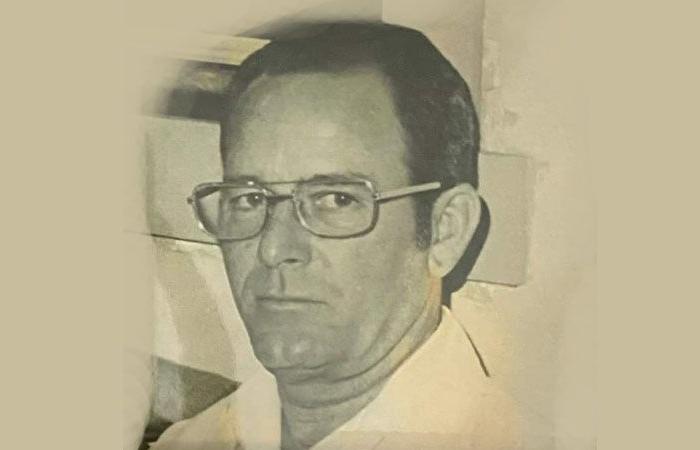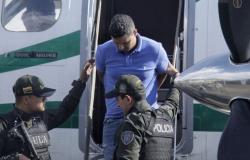By: Pedro Abreu Mujica
The 1940 constitution assigned excessive autonomy to the municipalities, to the detriment of the provincial governments, which were relegated to the background.
In real life, the mayor of Havana was the second highest ranking official in the country, preceded only by the president of the Republic.
A very illustrative example: The Vice President of the Republic, Rafael Guas Inclán (1954-58) aspired to and was “elected” Mayor of Havana, in the electoral farce of November 3, 1958. He did not have time to take office, the Revolution triumphed on January 1, 1959 (1).
Law 37 of January 29, 1959 created municipal governments made up of three commissioners who held the legal personality of the municipality with all the powers and functions until then conferred on mayors and councilors, which was repealed on February 27 of the same year. the municipal government will be in charge of a single commissioner, appointed by the Minister of the Interior.
This April 4th marks the 65th anniversary of the appointment of Andrés Orta Pagés to the position of Commissioner of the most important municipality in the province of Pinar del Río, which at that time included territories that later passed to other municipalities, such as Minas de Matahambre and Santa Lucia.
In honor of this celebration, I reproduce an updated summary of my Facebook page, from September 19, 2022 (2). With this publication I also pay tribute to my brother in struggle Raúl Díaz Iglesias, who passed away on February 10. Raúlito was one of the Pinar del Río revolutionaries who began working in the Municipal Government, that distant April 4, 1959.
In the first 3 months of 1959, a collegiate Municipal Government was established, made up of prominent people from Pinar del Río, participants in the clandestine fight against the Tyranny: Dr. Ricardo Sánchez Sánchez, teacher, from the Primary School #1 for boys, Efraín Martínez Andreu, clinical laboratory technician and the owner of the El Palacio de Cristal hardware store, Álcides Álvarez Perdomo.
At the end of the first quarter, the Ministry of the Interior issued a Resolution dissolving the municipal government of 3 commissioners, leaving a single Commissioner and abolishing the position of mayor. Responsibility at the municipal level of Pinar del Río fell to Andres Orta Pagés, who took office on April 4, 1959.
Andrés Orta Pages had a long and heroic career as a revolutionary combatant. He was one of the founders of the July 26 Movement, for long periods of time he was Head of Provincial Action, he organized the Pinar del Río uprising of November 30, 1956, from the Matahanbre Mines and other nearby mining reserves, he transported dynamite for war actions in Havana and other territories, he participated, along with Faustino Pérez, in the Hunger Strike of the political prisoners of the Castillo del Príncipe, he suffered persecution and torture in Pinar del Río, Havana and Isla de Pinos, from where he was released in the dawn of January 1, 1959.
Andrés Orta Pagés also had a fine political career as Municipal Commissioner and from 1961 to 1963, as president of the Municipal Jucei. It was the same position, although with different names. (3)
He not only introduced administrative honesty into the local treasury, which was inherent to the revolutionary process. He promoted a large construction program, with funds raised by the municipality: completion of the Municipal Government building, restoration of the old town hall converted into the Provincial Council of Culture, reconstruction of the Independence Park, construction of the road to Hoyo del Guamá, expansion of the Malecón avenue, paving of numerous streets and sidewalks, general reconstruction of the Municipal Cemetery.
Under the administration of Andrés Orta Pagés, the Fire Department was reorganized and professionalized and provided with modern means of transportation and firefighting. The same occurred with the so-called Casa de Socorros, where at that time medical emergency services were provided, to which he assigned new ambulances.
He improved the social services provided by the Municipality to the needy, garbage collection, street cleaning and promoted numerous new sources of employment. Road brigades were formed with powerful equipment and large dump trucks.
Important recreation centers became property of the town, such as the Rumayor and Pachín cabarets, which began to be called Criollo; the Riesgo cinema that became the Pedro Zaydén, in honor of the young student who heroically fell in the Attack on the Presidential Palace.
His stay in the highest leadership of the municipality was also characterized by solidarity aid to other agencies with fewer resources. The provincial newspaper El Socialista was often distributed to the most distant parts of the province, with the vehicles that Andrés lent us.
The revolutionary municipal administration inherited a complex problem from Batista: the closure of the old Mercado de Abasto y Consumo, located in the very heart of the city, to build a new one later, in the distant block between the streets of Colón, Delicias and Mariana Grajales. This provoked the rejection and protest of the small merchants of the place and adjacent streets, who demanded a market in the same place. Wooden platforms and shops were improvised, which a fire turned to ashes, next to the commercial zone included in the area between the streets Tomás Calero, Yagruma, Velez Caviedez and Martí.
The new management of the Municipality, faced with that disaster, built provisional facilities, well designed and executed, in the current Paquito González Park, which were used until other buildings emerged for those establishments.
This list could be much longer and include other spheres of society. Let us just say, in closing, that my generation remembers and honours Andres Orta Pages, as the First Mayor of the Revolution, in Pinar del Río.
GRADES:
1 The inauguration of the “elected” president, vice president, senators, representatives, provincial governors, municipal mayors and councilors was scheduled for February 24, 1959.
2. PEDRO ABREU MUJICA. Andrés Orta Pagés: The first Pinar del Río mayor of the Revolution, Facebook, seen on April 4, 2024.
3. In 1961, the Coordination, Execution and Inspection Boards (JUCEI) were created, originating in the province of Oriente and spread throughout the country as a new form of expression of revolutionary power.






